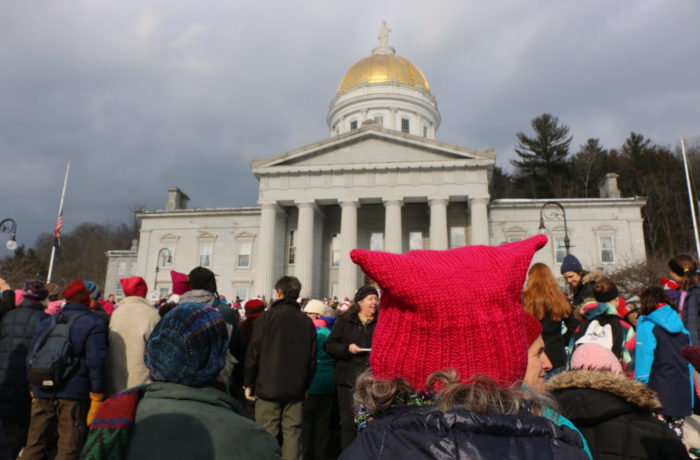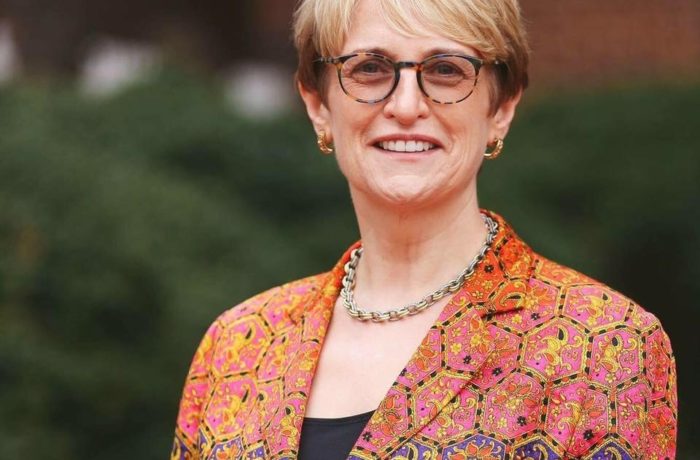By Alexandra Brown

The eve of Donald Trump’s inauguration marked the end of a transition that caused some Americans excitement, and others anxiety about the days to come. It was also the day that the American Civil Liberties Union (ACLU) requested documents under the Freedom of Information Act (FOIA) in an effort to uncover the incoming president’s potential conflicts of interest. However, any citizen has the right to make a FOIA request, even students at St. Michael’s College.
The ACLU requested a range of documents from legal opinions to direct message tweets from the Office of Government Ethics, the Office of Legal Counsel, the U.S. General Services Administration and the U.S. Office of Personnel Management. The information in these documents could show to what extent Trump’s businesses may influence his decision-making.
FOIA ensures that all citizens can request and receive government documents, and that courtrooms and government meetings are open to the public, providing transparency and accountability. It is an important tool for many journalists, which is why Media Studies students go through the process of accessing public information in the Media Law and Ethics course.
Natalie Jackson, ’19, got hands-on experience during a project for the course when she placed a FOIA request and attended public government proceedings. She visited the South Burlington City Clerk’s office to request property information about the selling price, owners, date sold and more of a local house. She also attended a court arraignment at the district courthouse in Burlington. Finally, Jackson attended a Natural Resource Committee meeting in South Burlington. She and her friend were the only people there other than the committee members, whom she said were, ” very welcoming.”
“Before the media law class, I didn’t realize that you can just show up to these meetings,” Jackson said. She further reflected,”I think the public should take advantage of that. I don’t think it’s taken advantage of enough.”
Jackson also learned that “anybody can get the information, “they are looking for under FOIA. However, the government can deny a FOIA request under nine legal exemptions, most notably for national security. Tax records fall under the “specifically exempted from disclosure by statute” rule.
However, for the past 40 years presidential candidates have released their tax returns to prove to citizens that no conflicts of interest will come before them. Trump broke this longstanding tradition when he did not release his tax returns during the 2016 Presidential campaign.
“Presidents in the past have not had world-wide economic interests to the degree that Donald Trump has, if they even had any,” said John Hughes, Professor of Political Science at St. Michael’s College. Hughes pointed out that President Trump could be in breach of the Emoluments Clause of the Constitution because he decided not to divest from his business. Presidents “shouldn’t receive any tangible or intangible benefits that could influence their decision making, from foreign governments.”
If Trump is found in violation of the Emoluments Clause, it would be unprecedented. Hughes added that past presidents have gone through congress to get an exception before receiving any gifts from foreign nations. He gave the example that in 2009 Barack Obama had to get permission from congress to receive the Nobel Peace Prize, subsequently donating the prize money to charity.
The organization may not be able to take immediate action, however. “A FOIA request does not necessarily happen overnight,” said Mike Donoghue, adjunct professor of Media Studies, Journalism and Digital Arts.
Jackson recalls a hectic atmosphere at City Clerk’s Office because her project was assigned during the busy last weeks leading up to the election. She was met with some pushback because of the chaos in the office.
When an employee told her that they didn’t have time to manage her request, she responded, “I know that I’m allowed to have it because of the Freedom of Information Act.” She was able to get the information she was looking for.
Citizens concerned about Trump’s potential conflicts of interests do not need to wait to take action. “This is the people’s government,” Donoghue said, suggesting people contact their congressmen.
“Don’t let this issue be buried, don’t let it go away,” Hughes also said, saying citizens can take action through their elected representatives.


